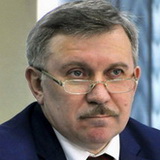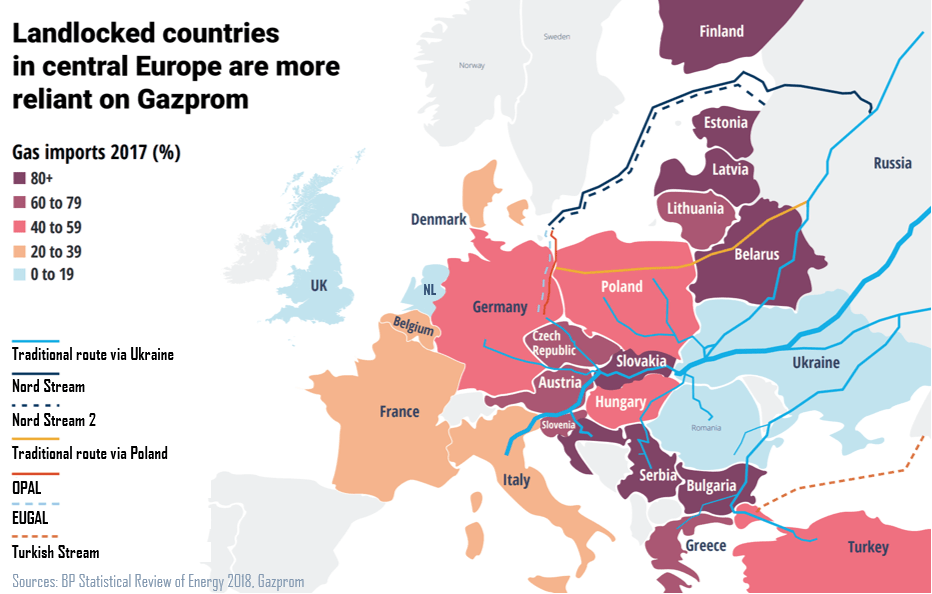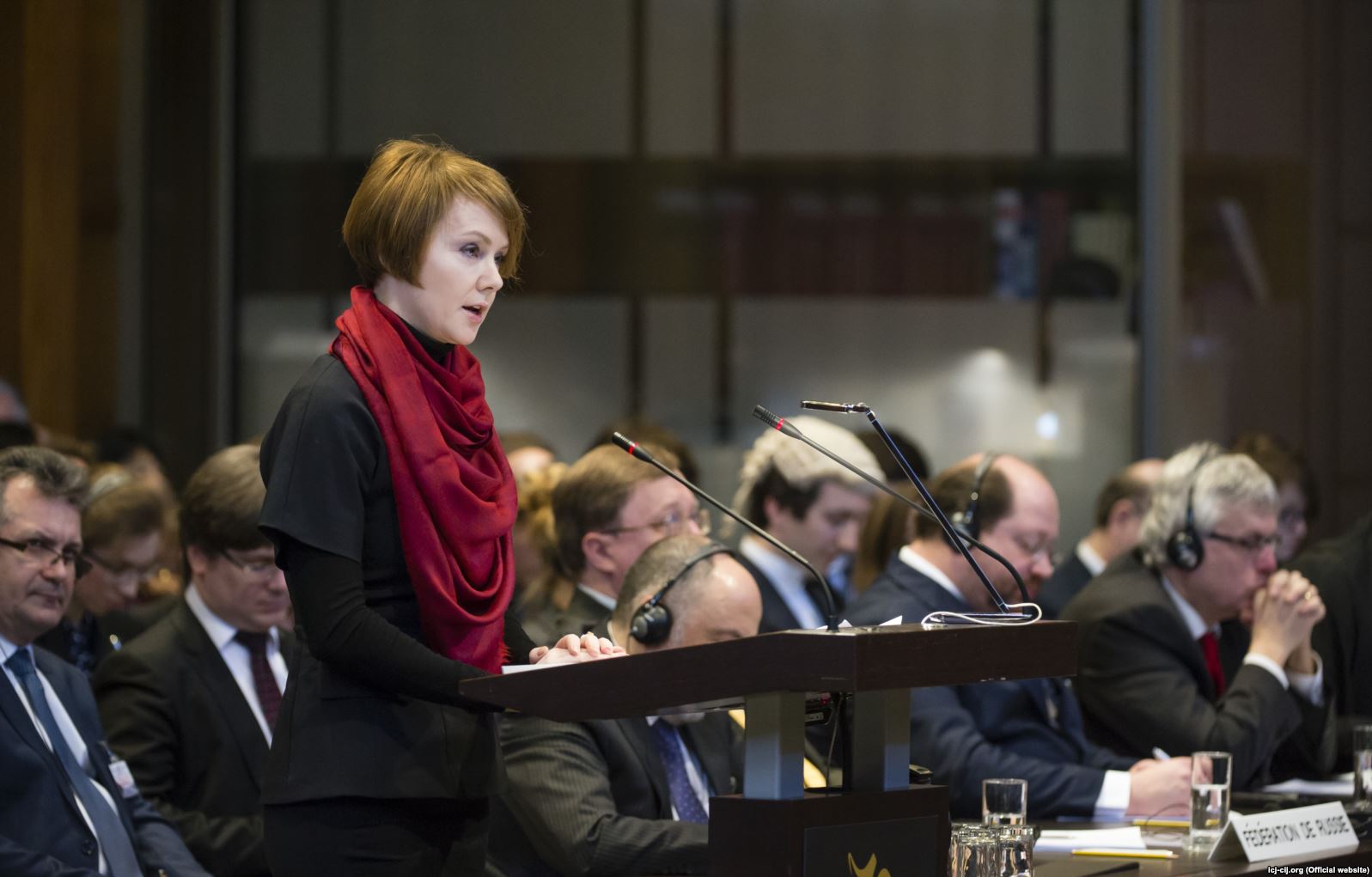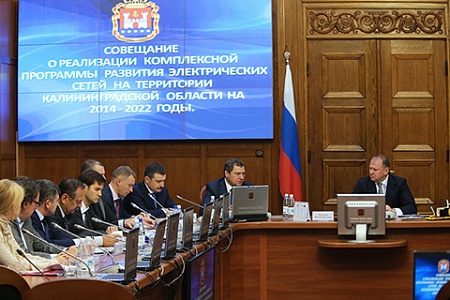
Mykhailo Gonchar, President at Center for Global Studies “Strategy XXI,” provides eight steps Ukraine and the West should take.
1. The Polish-Lithuanian-Ukrainian cooperation in countering Putin's pipelines should be aimed at working with the US Congress in order not only at restoring the sanctions on Nord Stream 2, but also at expanding them. The three countries also have the opportunity to guide the US authorities in investigating the activities of third-party organizations that seek to harm US national interests and their relations with strategic partners in Europe.
2. Ukraine should initiate consultations with the European Commission under Article 274 of the Association Agreement with the EU and Annex XXVI in connection with the preconditions for a crisis in case Nord Stream 2 is completed and Russia finalizes its system of pipelines bypassing Ukraine and Poland in the Baltic and Black seas, thus creating a perfect system of a gas supply monopoly to the EU from the east and Gazprom's anti-competitive behavior. Ukraine’s MFA has already undertaken this step.
“A second Budapest memorandum”: experts on the US-Germany Nord Stream 2 deal
3. Ukraine’s National Security and Defense Council should sanction the companies operating the Nord Stream pipelines, Nord Stream AG and Nord Stream 2 AG, as subjects whose activities aim at inflicting damage on Ukraine. A group of NGOs had directed such a request to the NSDC on 7 July.
4. Ukraine should launch an antitrust investigation against the operators of both pipelines, Nord Stream AG, Nord Stream 2 AG, and Gazprom. The grounds for this investigation are that, in case Nord Stream 2 is commissioned as well as the second line of Turkish Stream (the so-called "Balkan Stream"), Gazprom gets a perfect monopoly on gas exports to the EU from the east, operating all gas pipelines, but the gas transport system of Ukraine, and acting in violation of anti-competitive legislation of the EU on EU territory to the detriment of a competitor -- the gas transport operator of Ukraine.
5. EU institutions should launch an investigation into the activities of Gazprom's subsidiaries registered in Switzerland, in particular the operating companies Nord Stream AG and Nord Stream 2 AG, for compliance with EU law. This is important because they publish no financial statements, meaning that part of the funds can be freely used for subversive activities in Germany and other EU and NATO member states.
6. NATO should initiate a security audit of the Baltic underwater pipeline corridor and equipment installed in its area. In fact, the certification of Nord Stream gas pipelines is incomplete. It lacks a crucial safety component, namely -- verifying that it is impossible to use the underwater gas pipelines for extra-project purposes unrelated to gas transportation and their maintenance, such as placement of dual-purpose hydroacoustic equipment to control the underwater space.

7. The parliaments of several Central and Eastern European countries should propose a joint strategic initiative to ban further development of coal, oil, and gas fields in the Arctic to the European Parliament and the US Congress. It is in the high latitudes, above the Arctic Circle, where all of Gazprom’s fields are situated that Russia intensively develops to feed Putin's pipelines in defiance of environmental requirements.
In the Arctic, the extraction of the hydrocarbon resources that wind up on the EU market is accompanied by increased emissions of not only CO2 but also the more dangerous greenhouse gas methane.
Ultimately, this not only does not contribute to the EU's climate neutrality, but, on the contrary, inhibits it. Therefore, the operation of the Yamal-Nord Stream pipeline systems in Europe should be limited by at least 50% of their capacity, and imports of gas from Arctic fields should be subject to a carbon tax.
8. Ukraine should pay special attention to Kharkiv Oblast.
This region, producing up to 45% of Ukraine’s national gas production, borders Russia and is located near the front line. Kharkiv and Kharkiv Oblast in 2014 were one of the destinations where Russia tried to make a "people's republic." It will try to do it again, now to reduce Ukraine's energy resilience, just as it did with the critical Donbas anthracite coal, which is now controlled by the Russian puppet “Donetsk and Luhansk People’s Republics.” Therefore, a set of measures is needed to protect both the region's critical energy infrastructure and strengthen the counterintelligence regime and anti-sabotage activities.

Lana Zerkal, an adviser to Ukraine’s Energy Minister and former deputy Minister of Foreign Affairs for Eurointegration and advisor to Naftogaz CEO, has additional ideas. She believes that the only way Europe can protect itself from Russia’s gas stranglehold is through the EU’s Third Energy Package of diversity and security of supply, the key principles of which Germany vows to abide by in the US-German deal.
It is due to this energy guideline that Russia abandoned construction of the South Stream pipeline -- the EU demanded that the Third Energy Package be applied to it. To circumvent the regulations, Putin placed his bets on Turkish Stream, which aimed to supply the same volumes of gas to Europe. But he was outplayed by Turkish President Erdogan, Zerkal writes.
Erdogan got special conditions for gas supply to Türkiye and halved Moscow's appetites by granting permission to build only two of the four planned pipelines of the stream. In addition, the situation on the gas market of Southern Europe changed during the construction and launch of the second line of the Turkish Stream. While it was being built, Russian gas already had to compete with other supply sources, on transparent terms and according to European rules.
“Europe won the gas confrontation in the South, forcing the Russians to supply gas following EU law and diversifying its supply,” Zerkal notes.
Biden may lose ability to play around with Nord Stream sanctions: interview with Lana Zerkal
But in Europe’s North, the confrontation continues, and Ukraine can actually exploit the US-German deal, in which Transatlantic interests won over those of EU energy security, to strike down Gazprom’s monopoly.
“Washington has already been delaying the implementation of the Kremlin's plans for two years now, thanks to the lobbying team that worked for Naftogaz of Ukraine. Today, the United States has all the necessary legal capacity to impose sanctions on Nord Stream 2 at any time. It is a serious tool that can ‘support’ Germany in its quest to adhere to both the letter and the spirit of the Third Energy Package regarding Nord Stream 2. They can put pressure on Putin to end Gazprom's monopoly, to force it to trade gas under the same rules -- in Germany, Ukraine, Romania and anywhere. This is the main chance to win,” Zerkal states.
As the US-German Nord Stream 2 agreement is a framework one that has yet to be converted to specific actions and mechanisms, Ukraine still has plenty of leeway to limit Russia’s goals. For this, Ukraine needs to prove to the EU that its gas transport system is a real alternative to Gazprom’s monopoly. And the EU needs to preserve it precisely because of this, as its gas consumption is not expected to drop before 2035.
Seven reasons why the USA and EU lost to the Nord Stream 2 lobbyists
But for this, Ukraine needs to demonstrate that this alternative plays by the same rules as the EU, that its companies are independent and politicians cannot influence them, and that strategic enterprises will not change their management overnight after a call from somewhere higher up. Implementation of these simple rules of the market economy and the Third Energy Package protect both Ukraine and Europe from gas blackmail, Zerkal states.
“There is also a need for legal fixation of these agreements. The issue of security cannot remain at the level of statements. Ukraine and the EU must update the energy provisions of the free trade area, which is part of the EU-Ukraine Association Agreement, as soon as possible, and ensure full integration of Ukraine into the EU internal market, application of EU competition rules to all gas supply routes from Russia and their auxiliary investments and projects.
Using this approach, Ukraine and the United States can enter into a legally binding energy rules agreement, which may be part of a broader free trade agreement between the United States and Ukraine,” Zerkal sums up, adding that the issue of such an agreement must be a priority during Ukraine’s negotiations in the USA.
Related:
- Two keys to defeating Nord Stream 2 lie in Poland
- Seven reasons why the USA and EU lost to the Nord Stream 2 lobbyists
- “A second Budapest memorandum”: experts on the US-Germany Nord Stream 2 deal
- What the US-German deal on Nord Stream 2 promises Ukraine
- US-Germany Nord Stream 2 agreement — a victory for Russia
- Strategic corruption: the new hybrid weapon against the West
- After Nord Stream-2: how Ukraine can protect its gas transit
- Mitigating the Nord Stream 2 impact on Ukraine
- Biden may lose ability to play around with Nord Stream sanctions: interview with Lana Zerkal
- Time to stop Nord Stream 2 now: open letter by Ukrainian politicians, leaders





